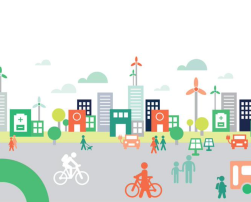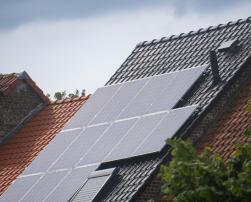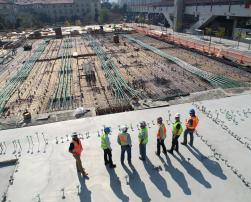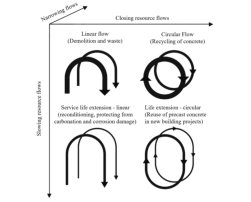
Energy Poverty Advisory Hub - Handbook 3
The third handbook of the 'Energy Poverty Advisory Hub (EPAH) Handbooks' focuses on implementing energy poverty mitigation actions, providing a structured six-step approach for local governments to transform planning into actionable strategies, while emphasising collaboration and adaptation to specific regional needs.
24/10/2024
Luca Papapietro

The interplay between aesthetics and energy performance in BIPV modules
A new study explores the balance between aesthetics and energy efficiency in coloured BIPV modules, finding that darker colours yield higher performance but face increased temperatures, reducing energy output in real-world conditions.
22/10/2024
Luca Papapietro

Speeding up the implementation of Zero-Emission Buildings and Neighbourhoods through targeted financial policies
This paper puts forward 10 key policy recommendations for national and regional policy makers for overcoming financial barriers for building renovation and transforming existing buildings into zero emission or positive energy neighbourhoods by 2050.
21/10/2024
Editorial team

Cooler Finance: Mobilising Investment for the Developing World’s Sustainable Cooling Needs
This report by IFC and UNEP predicts the sustainable cooling market in developing economies will double to $600 billion annually by 2050, highlighting the need for financing and collaboration.
21/10/2024
Luca Papapietro

Natural ventilation, trombe wall systems and their potential for sustainability
The article highlights the significance of trombe wall systems as effective passive ventilation solutions in modular homes, emphasising their role in energy efficiency and sustainability while identifying optimal parameters for performance and the need for further research on design factors.
18/10/2024
Luca Papapietro

Zero-energy buildings: the critical role of advanced PV technology
This analysis on zero-energy buildings (ZEBs) highlights the critical role of advanced photovoltaic technologies and cooling techniques, revealing that while most designs achieved ZEB status, buildings in Munich and Stockholm required additional building-integrated photovoltaics (BIPVs), with externally finned PVs demonstrating the highest efficiency in warmer climates.
17/10/2024
Luca Papapietro

Background data collection for future EU end-of-waste criteria of Construction and Demolition Waste
The study highlights strong stakeholder support for EU-wide End-of-Waste criteria for construction and demolition waste, emphasising the potential environmental and economic benefits while suggesting alignment with existing national standards.
17/10/2024
Luca Papapietro

Enhancing efficiency and reliability in district heating systems: the role of heat pumps and thermal storage in Helsingborg's energy centre
The report outlines how integrating heat pumps and thermal storage in district heating systems enhances efficiency and reliability, while also detailing the Energy Centre in Helsingborg's design and operational principles for meeting domestic hot water and space heating demands.
16/10/2024
Luca Papapietro

The EU Construction & Demolition Waste Management Protocol (2024 updated edition)
The EU Construction & Demolition Waste Management Protocol aims to enhance CDW management by fostering trust in recycled materials through comprehensive processes, quality assurance, and collaborative policy frameworks to promote circularity in construction.
15/10/2024
Luca Papapietro

A digital workflow for assessing lifespan, carbonation, and embodied carbon of reusing concrete in buildings
This study introduces a digital workflow for predicting concrete lifespan, CO2 uptake, and embodied carbon savings through reuse, tested on a 1960s building, highlighting reuse's potential to reduce emissions and extend service life.
14/10/2024
Arlind Dervishaj